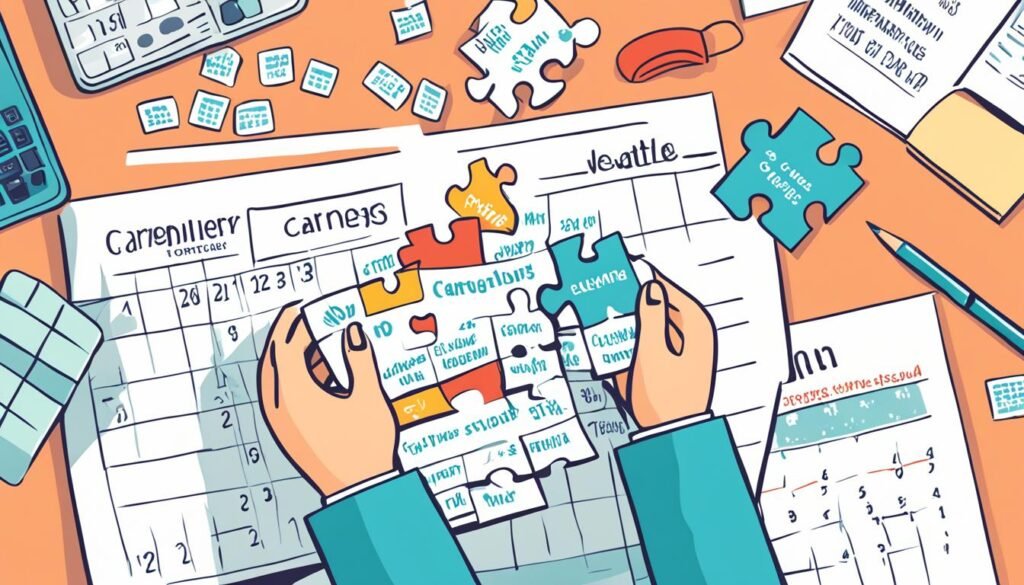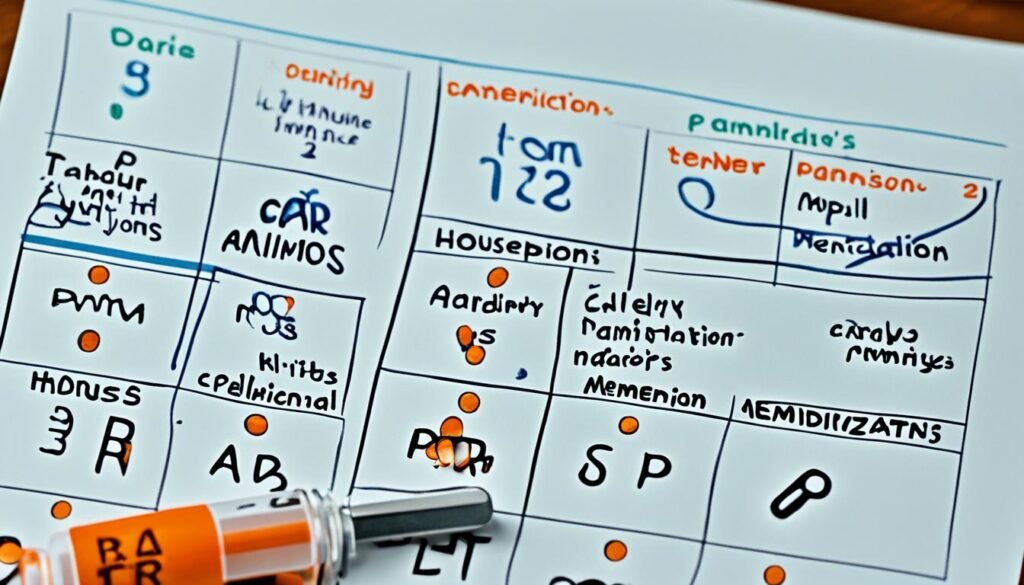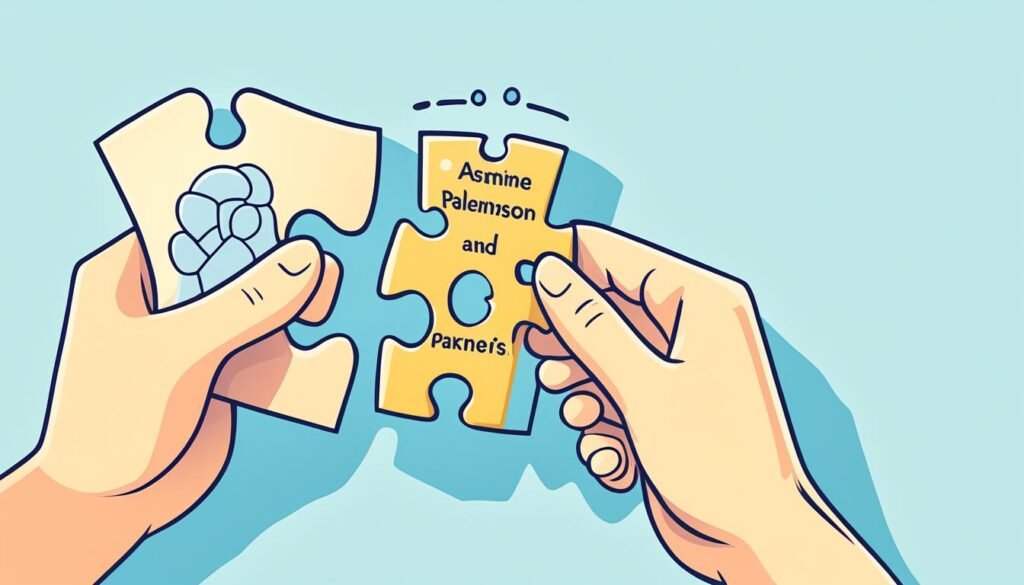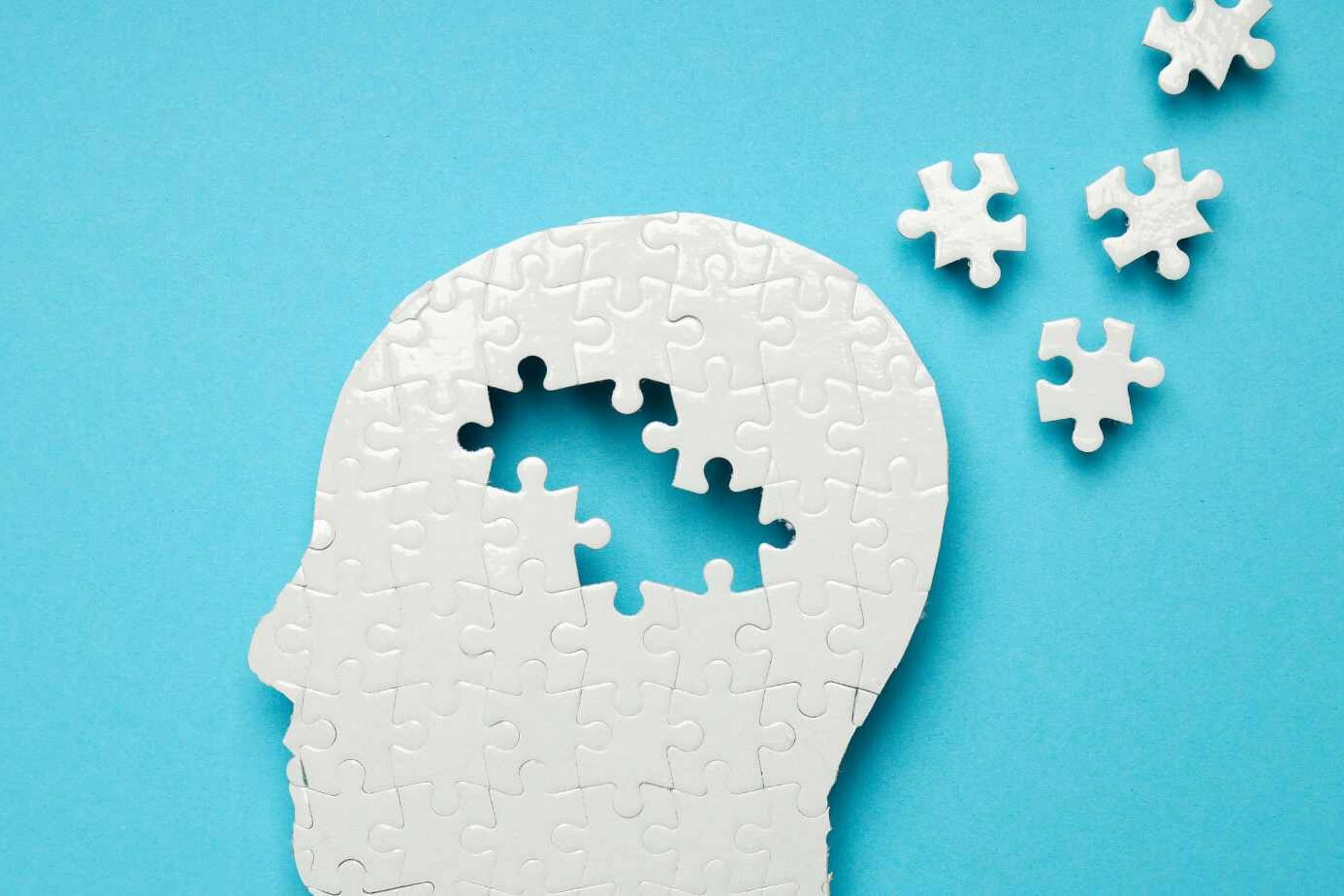Dealing with Alzheimer’s and Parkinson’s can feel overwhelming. But, with the right strategies, you can make life better for you and your loved one. This article offers 7 key tips to help manage these tough conditions.
Alzheimer’s and Parkinson’s affect millions globally. They have some similarities but need different management approaches. Knowing the differences and using the right strategies helps support your loved one and keep them well.
If you’re caring for a family member or managing your own condition, these 7 tips will help. They cover understanding the disease stages and focusing on self-care. This guide gives you the knowledge and tools to face challenges with confidence.
Table of Contents
ToggleAlzheimer and Parkinson Diseases
Alzheimer and Parkinson disease are two major neurological conditions. They can greatly affect a person’s thinking and physical abilities. It’s important to know the differences between them for better care.
What is Alzheimer’s Disease?
Alzheimer’s disease is a brain disorder that mainly affects memory, thinking, and daily activities. It’s the most common dementia type, making up 60 to 80% of dementia cases. It usually starts around 65 years old, but can start earlier due to genetics.
What is Parkinson’s Disease?
Parkinson’s disease is known for its motor symptoms like tremors, slow movements, and stiffness. It can also cause cognitive changes and dementia. It’s less common than Alzheimer’s, happening to about 1-2 people per 1,000. It usually starts at 60 years old, but can start before 40 in rare cases.

Both Alzheimer and Parkinson are brain-related conditions. Alzheimer’s mainly affects memory and thinking, while Parkinson’s impacts movement and motor skills. Yet, both can lead to cognitive decline and dementia.
Knowing the specifics of Alzheimer and Parkinson is key to managing them well. It helps in providing the right care for those affected by these conditions.
Alzheimer and Parkinson Disease
Alzheimer and Parkinson disease are complex conditions that greatly affect a person’s life. They have different symptoms but share some challenges in thinking and movement. Those caring for people with these diseases need to understand each condition well to help them the best.
About one-third of people with Parkinson’s will get dementia, called Parkinson’s disease dementia (PDD). PDD can make it hard to communicate, solve problems, think quickly, remember things, and affect mood. Medicines like rivastigmine can help, and therapy can also be useful.
Alzheimer’s disease affects around 5.8 million Americans and is the fifth leading cause of death for those over 65. People with Alzheimer’s usually live between 4 to 8 years after being diagnosed. It’s more common in women than men.
While Parkinson’s is more common in men, its dementia symptoms are similar to those of dementia with Lewy bodies (DLB). Many experts see Parkinson’s and DLB as the same disease, differing only in where it starts in the brain.
Dealing with Alzheimer and Parkinson requires understanding their unique challenges. Caregivers and those with these conditions must work with doctors to improve their lives and outcomes.

Early Signs and Symptoms
Knowing the early signs of Alzheimer and Parkinson diseases is key to getting help early. These conditions show up in different ways, but spotting the signs can lead to better care and support.
Signs of Alzheimer’s Disease
Alzheimer’s disease often starts with memory loss and trouble with words. Early on, you might forget recent events or struggle to find the right words. You might also feel lost in places you know well.
These issues can make daily life hard and get worse over time.
Symptoms of Parkinson’s Disease
Parkinson’s disease usually starts with motor problems like tremors and slow movements. You might see tremors when you’re not moving, walk with a shuffling step, or feel stiff. Your speech might also change, becoming softer or sounding the same all the time.
These physical changes can make everyday tasks harder.
It’s important to know that Alzheimer and Parkinson can show similar signs early on. People might see both cognitive and motor symptoms. If you or someone you know is showing these signs, seeing a doctor is a good step. They can give a full check-up and start the right treatment.
Cognitive Impairment and Dementia
Alzheimer and Parkinson diseases can cause cognitive problems and dementia. These issues can greatly affect your daily life and how well you can do things. Signs include memory loss, trouble solving problems, and language issues. It’s important to notice and deal with these changes to help keep your life as good as possible.
Parkinson’s disease usually starts in people over 50, with most starting at 60. But, younger people can get it too, especially if it starts before they’re 50. This is called early-onset Parkinson’s. Over time, about 4 in 5 people with Parkinson’s will also get dementia. They may lose memory, see things that aren’t there, and have trouble thinking clearly.
It’s thought that 30% to 40% of people with Parkinson’s will get dementia. This is much more common than in people without Parkinson’s. If someone with Parkinson’s lives for more than 10 years, at least 75% will get dementia. Some signs like stiffness, walking problems, mild memory loss, and seeing things that aren’t there can make getting dementia more likely.

Up to 36% of new Parkinson’s patients show signs of cognitive decline. On average, their thinking skills get worse by 1 point each year. For those with Parkinson’s dementia, it’s 2.3 points a year. Spotting and treating these changes early is key to keeping a good life for those with Parkinson’s.
Coping Strategies for Caregivers
Caring for a loved one with Alzheimer or Parkinson disease is tough. It’s both physically and emotionally hard. As a caregiver, you need to know how to handle this tough journey.
Educating Yourself
Learn about Alzheimer or Parkinson disease, their symptoms, and treatments. Know the challenges your loved one might face. Also, learn how to communicate well to give the best care. Being informed helps you make good choices and meet your loved one’s needs.
Attending Doctors’ Appointments
Be active in your loved one’s health meetings. Take notes, ask questions, and speak up for their needs. This makes sure the healthcare team knows how to help your loved one best.
You don’t have to go through this alone. Look for support groups, community help, and health experts. They can give you the advice and help you need to care for your loved one. And don’t forget to take care of yourself too.

Medication Management
Managing medications is key for people with Alzheimer or Parkinson disease. Caregivers must work closely with doctors to understand the medicines, their side effects, and the need for regular doses. Creating a system to keep track of when to take medicines helps make sure your loved one gets the most from their treatment.
Knowing about the treatments for Alzheimer and Parkinson is important. For Alzheimer’s, drugs like donepezil and rivastigmine help keep the mind sharp. For Parkinson’s, levodopa and other drugs manage the motor symptoms and improve life quality.
It’s also vital to watch for side effects and tell the doctor about any changes. Side effects can include stomach problems, feeling sleepy, or changes in behavior. These should be talked about right away to keep the patient safe.
Being organized, talking with doctors, and watching how the medicines work helps caregivers. This way, your loved one with Alzheimer or Parkinson gets the best treatment plan. This approach can greatly help manage symptoms and slow down the disease.

Managing medications is an ongoing task that needs teamwork between caregivers and doctors. By being alert and active, you can help your loved one face Alzheimer’s or Parkinson’s with more confidence and support.
Legal and Financial Planning
When Alzheimer and Parkinson diseases get worse, it’s key to plan for legal and financial matters early. Setting up a power of attorney and advance directives is crucial. These steps make sure your loved one’s healthcare and financial wishes are followed, even if they can’t make decisions on their own. Talking to an elder law attorney can help with these complex legal and financial issues.
Power of Attorney
A power of attorney lets people with Alzheimer or Parkinson choose someone they trust to make legal and healthcare choices for them. This is a key tool to keep their wishes in place as the disease gets worse and they can’t handle their affairs by themselves.
Advance Directives
Advance directives, like living wills, let people say what life support treatments they want in a coma or at the end of life. This brings peace of mind and helps avoid hard choices for family during tough times.
Planning for the costs of medical care and living with Alzheimer or Parkinson means looking at all your money and financial papers. Working with experts like financial planners, estate planning lawyers, or accountants can help. They can make good plans, look at income sources, and find tax breaks.

People with these diseases should talk about their legal and financial matters with family and caregivers. This way, they can make decisions for them as things get harder. By planning ahead for legal and financial stuff, people with Alzheimer or Parkinson can make sure their wishes are followed. And their families will be ready to take care of them and manage their money well.
Safety and Support Services
Keeping people with Alzheimer or Parkinson safe and well is very important. Using support services like home safety checks, medical alert systems, and adult day programs helps. These services create a safe place and give caregivers a break. Working with local and national groups can also connect families with the help they need.
For those with Alzheimer’s, making the home safe is key. This means putting locks where they can’t be seen, making sure paths and rooms are bright, and taking away things that could be dangerous. It’s also smart to remove rugs that could trip someone and clean up the living space to avoid accidents.
People with Parkinson’s disease often have a higher risk of falling, with most falls happening at home. Adding safety features like grab bars, textured stickers on slippery spots, and a walk-in shower can make bathrooms safer. Keeping cleaners and other chemicals away from reach can stop accidental poisoning in the laundry area.
Getting ready for emergencies is also vital. Caregivers should keep important phone numbers like police, fire, hospitals, and poison control close by. Checking and keeping safety devices like carbon monoxide and smoke detectors working is also key.
Using support services and safety steps can make life better for people with Alzheimer or Parkinson. It also helps caregivers feel better. This makes life better for both the caregiver and the person being cared for.

Self-Care for Caregivers
Caring for a loved one with Alzheimer or Parkinson can be tough on you. It’s key to look after yourself to give the best care. Keep fit, find emotional support, and manage stress to take care of yourself and your loved one.
Maintaining Physical Health
Being a caregiver can affect your health. Make sure to sleep well, eat right, and move a bit every day. Even a short walk can help. Regular doctor visits keep you on track with your health.
Seeking Emotional Support
Looking after someone with these diseases can be hard on your feelings. Look for counseling, support groups, or respite care. Talk to other caregivers for support. Don’t forget to take time for things that make you happy and relaxed.
Watch out for signs of stress like feeling short-tempered, not sleeping well, or forgetting things. Setting self-care goals and taking small steps can help you stay well. This way, you can keep giving great care to your loved one.
Looking after your body and mind is key when caring for someone with Alzheimer or Parkinson. By focusing on caregiver self-care, you can handle stress better, stay healthy, and get the emotional support you need to face caregiving challenges.
Stages of Alzheimer and Parkinson Diseases
Alzheimer and Parkinson are progressive conditions that affect the brain. They have different stages of decline in thinking and physical abilities. Knowing these stages helps people and their caregivers plan for the future and adjust care plans.
Stages of Alzheimer’s Disease
Alzheimer’s disease goes through seven stages, from mild forgetfulness to needing full care. Early on, people may forget things and find it hard to make decisions. Later, they might struggle with daily tasks, change in personality, and lose their ability to move around.
Stages of Parkinson’s Disease
Parkinson’s disease starts with mild symptoms on one side of the body and gets worse over time. It can lead to severe loss of movement and needing help all the time. The disease gets worse with time, causing more motor problems, thinking issues, and sleep problems.
Knowing how these diseases progress is key to giving the right support. Alzheimer’s and Parkinson’s both cause thinking problems and need caregivers. Understanding the stages helps make better decisions and improves outcomes for those with these diseases.
Conclusion
Managing Alzheimer and Parkinson disease is tough but possible with the right support. People and their caregivers can make life better for those with these diseases. Knowing about these diseases, finding helpful resources, and taking care of yourself are key steps.
This article has given you a lot of information on symptoms, how these diseases progress, and ways to manage them. Being informed and proactive helps you make good choices and get the right medical care. It also helps you use caregiving strategies that improve your loved ones’ well-being.
There are many support systems and resources out there to help you. You’re not alone in this journey. As these diseases become more common, it’s important to keep up with new treatments and support services. By doing so, you can make sure you and your loved ones get the best care possible.
Remember, the article mentioned a study that shows the latest research and advancements. Staying informed helps us work towards a future where managing Alzheimer and Parkinson is easier and more effective for everyone in India.
FAQ
What is the difference between Alzheimer and Parkinson disease?
Alzheimer’s disease makes memory, thinking, and daily tasks harder. Parkinson’s disease is known for shaking and slow movements. It can also cause thinking and memory problems.
What are the early signs and symptoms of Alzheimer and Parkinson diseases?
Alzheimer’s disease starts with memory loss and trouble with words. It also brings changes in behavior. Parkinson’s disease first shows with shaking, slow movements, and trouble with balance.
How do cognitive impairment and dementia affect individuals with Alzheimer and Parkinson diseases?
Both diseases cause memory loss and trouble with solving problems and using words. These changes make everyday tasks hard and affect how well people can function.
What strategies can caregivers use to support their loved ones with Alzheimer or Parkinson disease?
Caregivers should learn about the diseases and go to doctor’s appointments. They should speak up for their loved ones and manage their medicines well. Using support services helps create a safe place and gives caregivers a break.
Why is it important for caregivers to prioritize their own well-being?
Taking care of someone with Alzheimer’s or Parkinson’s is hard on the body and mind. Caregivers need to keep a healthy lifestyle, sleep well, and get emotional support. This helps them care for their loved ones better.
How can individuals and caregivers prepare for the different stages of Alzheimer and Parkinson diseases?
Knowing how these diseases get worse helps people and caregivers plan better care. They can adjust their support and make sure they have the right help as the diseases get more severe.
Source Links
About The Author

Medically reviewed by Dr. Chandril Chugh, MD, DM (Neurology)
Board-Certified Neurologist
Dr. Chandril Chugh is a U.S.-trained, board-certified neurologist with expertise in diagnosing and managing neurological disorders, including migraines, epilepsy, Parkinson’s disease, and movement disorders. His clinical focus includes evidence-based neurological care and patient education.
All content is reviewed for medical accuracy and aligned with current neurological guidelines.




